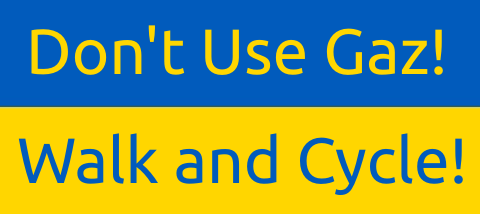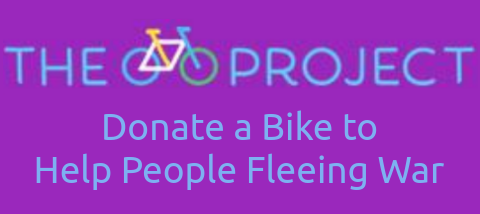
The origins of the ‘Playing Out’ scheme are from a couple of parents in South Bristol who were frustrated that their children had nowhere to play. They knew of the procedure to close a road for a street party and so wondered if it could be used to close their street one afternoon just for children to play freely. [1]
The first session happened on June 1st 2009 and the organisers received such a positive response that they decided to trial other streets. ‘Playing Out’ has now spread nationally and internationally receiving support from local and national government. It has partnered with many organisations who see the positive benefits for children’s physical and mental wellbeing [2] (and that of their parents!).
In August 2014 a local community group brought ‘Playing Out’ to streets in Moseley and Kings Heath as part of National Play Day.
Two years on, one street in Kings Heath have embraced the idea of ‘Playing Out’ and are now closing their street for an afternoon every 4 - 6 weeks to allow their children to play and for adults to drink tea and chat with neighbours.
I interviewed one resident to find out how the ‘Playing Out’ scheme had begun and what it now means for them and their neighbours.
Question: How did you organise the original ‘Playing Out’ events?
Answer: “We sent initial letters around asking if anyone wanted to be involved. A few people got in contact to say they would like to help. You have to talk to the residents because there are often concerns about parking and deliveries during the time that the road is closed. The main onus being the stewarding at each end of the road. We found some people liked stewarding because it gave them a role. There was a real sense of pride from the people on the street that they were doing something different.“
“At the first event in 2014 we had the Libraries come and do some storytelling and we had Active Parks who turned up with pop up badminton sets and we also had musical instruments for the smaller children. When it first started it created such a profile that it became a public event. We had people from the other side of Birmingham coming to our street and we ended up just serving free tea and coffee... Initially we thought we had been really successful but then when we evaluated it asked whether this is really a success?”
After the first event in August 2014 the concept of ‘playing out’ was incorporated into a department within Birmingham City Council; thanks to internal advocacy for the scheme.
After the first few playing out days, the neighbours decided that less is more. It is now only publicised to the local residents who live in the nearby streets.
Question: How do you now arrange the street road closures?
Answer: “We stripped it right back and put the emphasis on people bringing things if they wanted to and about sharing which really seemed to solve it. So at the end of last year the play streets were more successful, they were quieter but the street enjoyed it a lot more and the street neighbours felt they had a more pleasant time because they had got to know each other a little bit more and then the kids are just free to do what they want.“
The residents agree the dates for the road to be closed and issue the list to the council for approval. Once approved they close off their road using their banners provided by the council tethered to wheelie bins. Residents aim to relocate as many cars as possible to create a more open street to play in.
“We let the street know our intentions for the year and offer people an opportunity to say they are not happy about any of the dates chosen.... Not all the street like it although no one has been difficult about it and even if people don’t attend they still bring some food out or some sweets for kids so there is a real generosity even if not involved.”
Question: Do you have any problems with vehicle access or from other road users?
Answer: “This road works well because it isn’t currently used for through traffic. Other roads in the area which have had ‘playing out’ days have had more difficulties with car users wanting to use the roads which can cause confrontation.”
Question: What have you learnt over the years of closing the street?
Answer: “If anything the focus really needs to be about finding a mechanism for the adults to talk. Towards the end of last year we did something called a Sunday Social which we said was specifically for adults so the kids will come out and play but really it’s about us meeting each other. All the tables went into the street a bit like the coronation! What was really fascinating is that far more of the adults got involved and everyone felt a level of ownership over it in a way they hadn’t previously.”
The ‘Playing Out’ scheme appears to be successful due to its simplicity. Councils across the country including Birmingham City Council are realising the benefits of allowing people to reclaim their neighbourhoods.
‘Playing Out’ allows children and adults access to large spaces directly outside their doors to play and socialise, encouraging neighbours to get to know one another and form the beginnings of a supportive community.
Generations who grew up without the dominance of the car, reminisce about their childhoods when streets used to be safer places to play and socialise. Elderly neighbours are encouraged to join the party and can sit outside and enjoy watching children play. The social importance of an inclusive street can’t be overlooked particularly in a world where gated communities and elderly housing villages are becoming so prevalent.
What can ‘Playing Out’ mean for cycling?
I believe there is significant benefit to the ‘playing out’ idea which can help the promotion of cycle infrastructure in the short and long term.
In London the three winning ‘Mini-Holland’* schemes have come under significant pressure from residents and business owners who don’t agree with creating pedestrianised residential streets and diverting through traffic to peripheral roads. Thousands signed a change.org petition to stop the scheme [3], however Waltham Forest Cabinet bravely approved the delivery plan for the Mini Holland Scheme in February 2015 [4]. Then opposition filed a case to the High Court which was dismissed on the 6th November 2015 [5]. The scheme is now progressing; but the opposition created significant noise and disruption and should not be underestimated for their ability to destabilise this type of project.
In the cycling community the ‘Mini Holland’ concept is perhaps representative of a way to provide a better environment, healthier population and safer streets, however many in Walthamstow certainly didn’t agree. It is important to design such infrastructure carefully; some areas in Birmingham may lend themselves more readily to this type of scheme if they have high population density and good transport links etc. Birmingham City Council could learn from the ‘Mini Holland’ schemes that it is important to be bold when designing infrastructure and aspirational with transport master-planning.
The residents in Kings Heath and across the country are taking back this public space and enjoying the simple rewards of safe streets. If ‘playing out’ streets became a regular event across Birmingham, perhaps it would it be an easier transition for residents and businesses to then support permanent road closures in their area.
Parents could let their children play out once again without fear, cyclists could navigate their neighbourhood and actually enjoy it without fear of being knocked off and pedestrians could cross roads with ease…..taking back the streets feels too great an opportunity for communities not to seize now!
Works Cited:
[1] P. Out, "Playing Out The Story," [Online]. Available: http://playingout.net/about/playing-story/. [Accessed 03 04 2016].
[2] U. o. Bristol, "University of Bristol," [Online]. Available: http://www.bristol.ac.uk/sps/research/researchprojectpages/pearproject/o.... [Accessed 03 04 2016].
[3] change.org, "change.org," [Online]. Available: https://www.change.org/p/stella-creasy-mp-stop-mini-holland-in-walthamstow. [Accessed 04 04 2016].
[4] W. F. Council, "Mini Holland Programme," [Online]. Available: http://democracy.walthamforest.gov.uk/mgAi.aspx?ID=26120. [Accessed 04 04 2016].
Bibliography:
P. Out, "Playing Out The Story," [Online]. Available: http://playingout.net/about/playing-story/. [Accessed 03 04 2016].
U. o. Bristol, "University of Bristol," [Online]. Available: http://www.bristol.ac.uk/sps/research/researchprojectpages/pearproject/o.... [Accessed 03 04 2016].
change.org, "change.org," [Online]. Available: https://www.change.org/p/stella-creasy-mp-stop-mini-holland-in-walthamstow. [Accessed 04 04 2016].
W. F. Council, "Mini Holland Programme," [Online]. Available: http://democracy.walthamforest.gov.uk/mgAi.aspx?ID=26120. [Accessed 04 04 2016].
B. a. I. L. I. Institute, "England and Wales High Court Decisions," [Online]. Available: http://www.bailii.org/ew/cases/EWHC/Admin/2015/3907.html. [Accessed 04 04 2016].
T. Londonist, "The Londonist," [Online]. Available: http://londonist.com/2015/09/video-mini-holland-comes-to-walthamstow. [Accessed 04 04 2016].
B. University, "PEACH," [Online]. Available: http://www.bristol.ac.uk/sps/research/researchprojectpages/pearproject/o.... [Accessed 03 04 2016].
Notes:
* The term ‘Mini Holland’ is used to describe a neighbourhood design where cyclists and pedestrians can permeate but through traffic is diverted to the periphery. See the website article for references and for further information.


